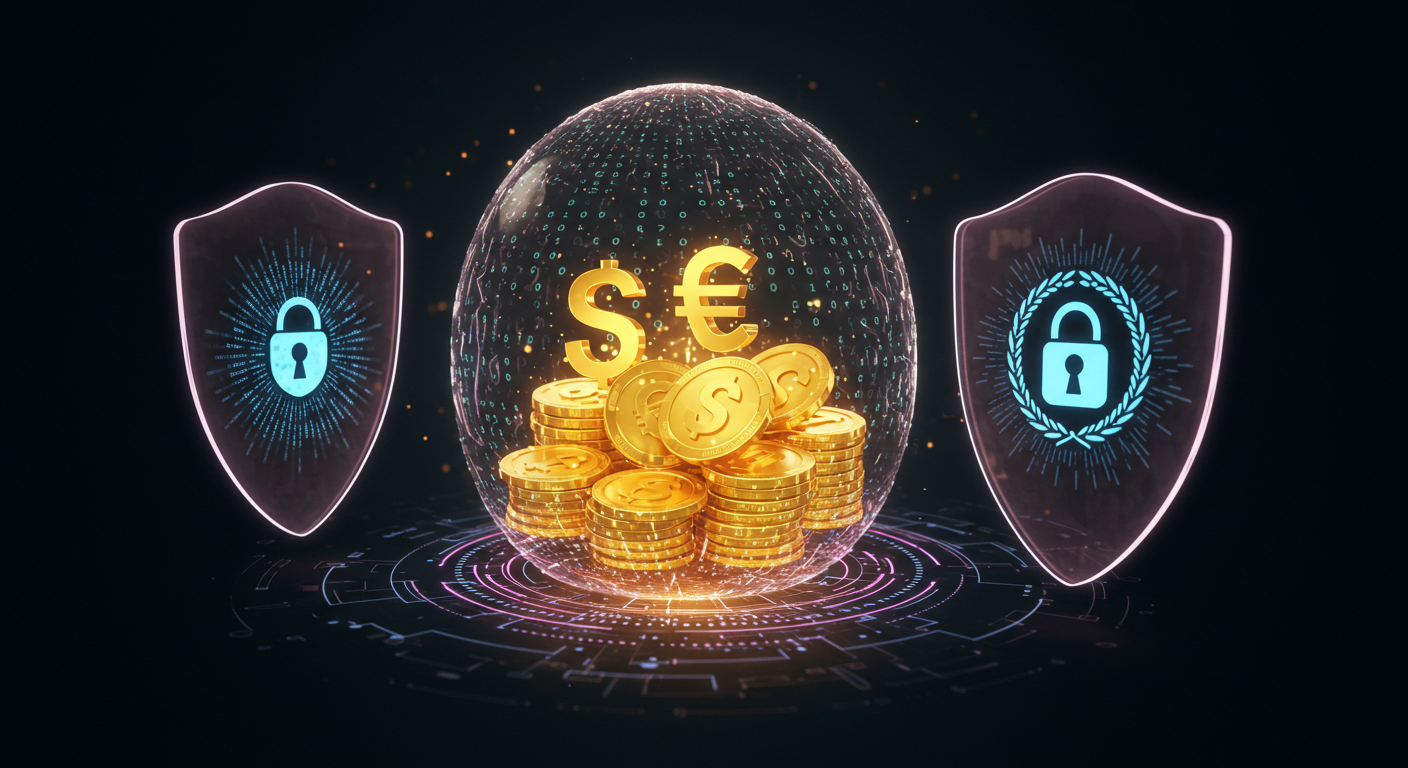In the dynamic world of forex trading, selecting the right broker is paramount. While numerous factors influence this decision, the security of your funds and personal information should be your top priority. A secure broker not only grants access to the markets but also safeguards your investments, fostering a safe and reliable trading environment. Never compromise on security; it’s the foundation of successful forex trading.
Choosing a secure broker is akin to selecting a bank: you entrust them with your money and expect it to be safe. Given the increasing prevalence of cyber threats and fraudulent schemes, partnering with a regulated and reputable secure broker is more critical than ever. This article explores the essential aspects of broker security, empowering you with the knowledge to make informed decisions and protect your trading capital.
Jump To Section:
- Understanding the Risks of Unregulated Brokers
- Key Security Features to Look for in a Broker
- Encryption and Data Protection Standards
- Segregation of Funds: Protecting Your Investments
- Two-Factor Authentication (2FA) for Enhanced Security
- Reputation and Regulation: A Broker’s Track Record
- Secure Broker Checklist: Ensure Your Funds are Safe
- Conclusion
Understanding the Risks of Unregulated Brokers
Unregulated brokers operate without oversight from financial authorities, meaning there’s no assurance of their legitimacy or financial stability. Trading with an unregulated broker exposes you to significant risks:
- Fraud and Scams: Unregulated brokers are more prone to fraudulent activities, including manipulating trading platforms and improperly withholding funds.
- Lack of Financial Protection: In the event of bankruptcy or insolvency, you risk losing your entire investment due to the absence of a compensation scheme.
- Unfair Trading Practices: Unregulated brokers might engage in unfair practices like price manipulation or excessive slippage, to their benefit.
Always prioritize regulated brokers to protect your investments and ensure fair trading conditions. A secure broker is invariably a regulated broker.
Key Security Features to Look for in a Broker
When evaluating a secure broker, consider these vital security features:
- Regulation by a Reputable Authority: Seek brokers regulated by recognized authorities such as the FCA (UK), CySEC (Cyprus), or ASIC (Australia).
- Advanced Encryption Technology: Verify that the broker employs SSL encryption to safeguard your personal and financial data during transmission.
- Segregation of Funds: Your funds should be held in accounts separate from the broker’s operational funds, providing an additional layer of protection.
- Two-Factor Authentication (2FA): Activate 2FA to enhance the security of your account login process.
- Regular Audits: A secure broker undergoes regular audits by independent firms to ensure adherence to regulatory standards and financial soundness.
Encryption and Data Protection Standards
A secure broker utilizes robust encryption protocols to shield your sensitive data from cyber threats. Prioritize brokers that employ Secure Socket Layer (SSL) encryption, which encrypts data exchanged between your computer and the broker’s servers. This guarantees the confidentiality and security of your personal and financial information. Furthermore, a secure broker should adhere to data protection standards like GDPR, demonstrating a commitment to safeguarding your privacy.
Segregation of Funds: Protecting Your Investments
Segregation of funds is a critical security measure that protects your investments should the broker encounter financial difficulties. A secure broker maintains your funds in a separate account from its own operational funds. Consequently, your money cannot be used to settle the broker’s debts or liabilities. In the case of broker insolvency, your segregated funds are protected and can be returned to you.
Two-Factor Authentication (2FA) for Enhanced Security
Two-Factor Authentication (2FA) provides an extra layer of security for your trading account. When enabled, you must provide two forms of identification to log in, such as your password and a code sent to your mobile device. This significantly hinders unauthorized access to your account, even if your password is compromised. Always select a secure broker that offers 2FA and enable it for optimal protection.
Reputation and Regulation: A Broker’s Track Record
Before entrusting your funds to a broker, investigate their reputation and regulatory standing. Look for brokers with a solid track record and positive feedback from other traders. Verify their regulatory licenses and confirm their authorization to operate in your jurisdiction. A secure broker will be transparent about their regulatory information and readily provide it on their website. Also, consider their longevity; a long-standing presence in the market often signifies stability and dependability.
Secure Broker Checklist: Ensure Your Funds are Safe
Utilize this checklist to assess the security of a broker:
- Is the broker regulated by a reputable authority?
- Does the broker use SSL encryption to protect your data?
- Does the broker segregate client funds from their own funds?
- Does the broker offer Two-Factor Authentication (2FA)?
- Does the broker have a good reputation and positive reviews?
- Has the broker been operating for a significant period of time?
If you can confidently answer “yes” to all of these questions, you are likely dealing with a secure broker.
Conclusion
Selecting a secure broker is not merely a matter of convenience; it’s a fundamental necessity for safeguarding your investments and ensuring a secure and reliable trading experience. By recognizing the risks associated with unregulated brokers and prioritizing security measures like regulation, encryption, segregation of funds, and 2FA, you can make well-informed decisions and trade with confidence. Remember, your security is your responsibility, so invest the time to choose wisely.



